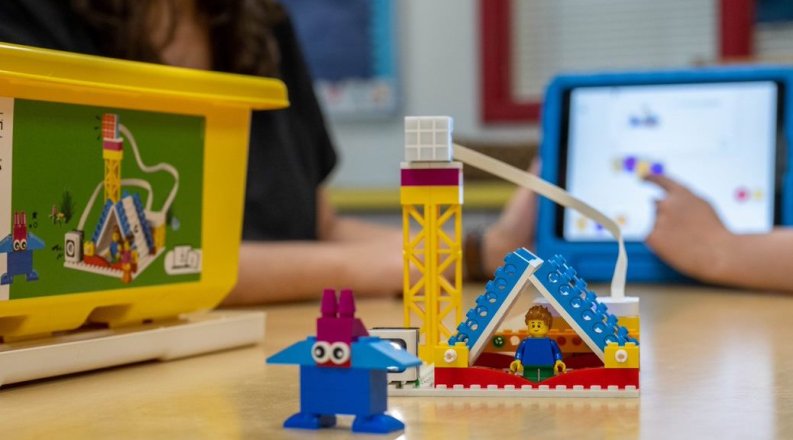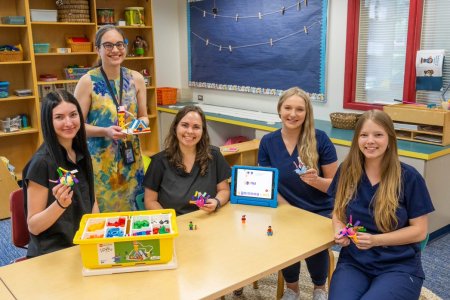Old Dominion University’s Speech and Hearing Clinic is introducing a program this month that will utilize LEGOs to help improve the social communication skills of children diagnosed with autism.
The Tidewater Scottish Rite LEGO Social Skill Group will meet twice a week and will run from June 20 through July 20 at the Lions Child Study Center.
“I think, as therapists, we’re trying to change the way the world works to be more accepting of people with different neurotypes,” said Rachel Genrich, a lecturer in the Department of Communication Disorders and Special Education who is leading the effort. “But we also have to function in the world as it is now.”
In its inaugural year, the program will be for 7- to 9-year-olds with “low-support needs,” Genrich said.
“That’s a prime age range for interest in LEGOs,” she said. “We want them to be engaging in natural communication exchanges during something that’s inherently meaningful for them. There’s also going to be lots of opportunities for problem-solving.”
Genrich said this program will consist of two primary activities.
At the start of the day, the children will do an activity from the “You Are a Social Detective” social thinking curriculum. That could consist of taking a “field trip” around the building and identifying what they encounter, or it could be craft-based.
“It’s about building social awareness and perspective-taking – figuring out what is a situation and what would be an appropriate way to respond in that situation, picking up on those context clues,” Genrich said.
Activities using the LEGO Education curriculum will come in the latter part of the day.
The children will work as a group and take on different roles throughout the five-week program. A child might be the “engineer” in charge of a building plan on one day and the “builder” on another day.
“I like the LEGO Education sets because there are more opportunities for problem-solving and flexibility versus just following the instructions to build something specified,” Genrich said. “So they’re going to have to collaborate and compromise to come up with some kind of modification. That’s going to provide them a lot of opportunities to resolve conflict.”
Four first-year master’s student clinicians will help facilitate communication and problem-solving, Genrich said.
“They’re not in there to step in and solve a problem for them but really to guide them to the answer and just to encourage those kinds of connections,” she explained. “We’re not trying to have the students communicate in a way that’s inauthentic to them.
“Autistic people communicate in a different way. We’re not going to be mandating eye contact or saying you have to have a certain number of follow-up questions or anything like that. It’s really about finding a way that works for them and helping them to pick up on all those social cues.”
The Tidewater Scottish Rite Speech & Language Foundation Inc. is providing funding to help offset the cost of the program for parents. The Scottish Rite’s association with ODU dates back to 1989. Since then, the foundation has provided roughly $1.75 million for the Communication Sciences and Disorders Program.
Jack Goodwin, one of the foundation’s directors, noted that speech and language disorders affect approximately 6 million children in the United States. The Scottish Rite supports RiteCare speech and language clinics all over the U.S., including the one at ODU.
“For us, it’s a very special philanthropy,” Goodwin said. “For me, it’s been extraordinarily heart-warming to go to ODU and see the success stories. It’s just hard to describe what makes you feel more warm-hearted than to hear a child talk for the first time – or to see the parent who hears a child speak for the first time.
“This is what we do, and it makes me so proud to be a part of that.”
More information can be found here.




